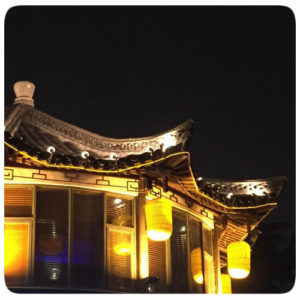Amie Ali’s Whispers from the East
tells the story of a traditional marriage and two modern marriages in this family saga. I was interested in joining this book tour because I recently read and enjoyed two modern Muslim romances, Veil of Roses
, about an Iranian girl in an American ESL class, and Girls of Riyadh
, about, uh, four girls of Riyadh. (If you don’t have several hours of mandatory reading time in your office hours, and only have time for one of these two, go with Girls of Riyadh.)
Whispers From The East manages to be both a fairly quick read and a family saga covering a few generations. My favorite part was about the son of a traditional Muslim family falling in love with, and secretly moving in with an American girl. She converts to Islam so they can get married, and he adopts her child, which doesn’t exactly thrill his traditional parents. I thought that conflict was quite believable here, and readers can see both Christine’s willingness to wear a headscarf and memorize some Arabic phrases, if it’s so very important to the man she loves, and her husband’s growing annoyance that she views his faith as going through the motions.
Their relationship struggles a great deal, and just when I was starting to be afraid that this novel was a morality tale about American harlots, the other brother falls in love with another American convert. Their relationship is both dutiful and romantic. Family sagas, you guys. I could just read about other people’s family’s having dinner and making comments to each other all day.
I don’t want to reveal the novel’s ending, but every arc gets resolved in a believable way, even if not every story ends positively.
I received a copy of this novel to review. Opinions are my own, because even free books can’t restrain my snark about bad books. You can see the previous review of Whispers From The East over on Svetlana’s Book Reviews, and the next one will be at Indie Writers Review.







